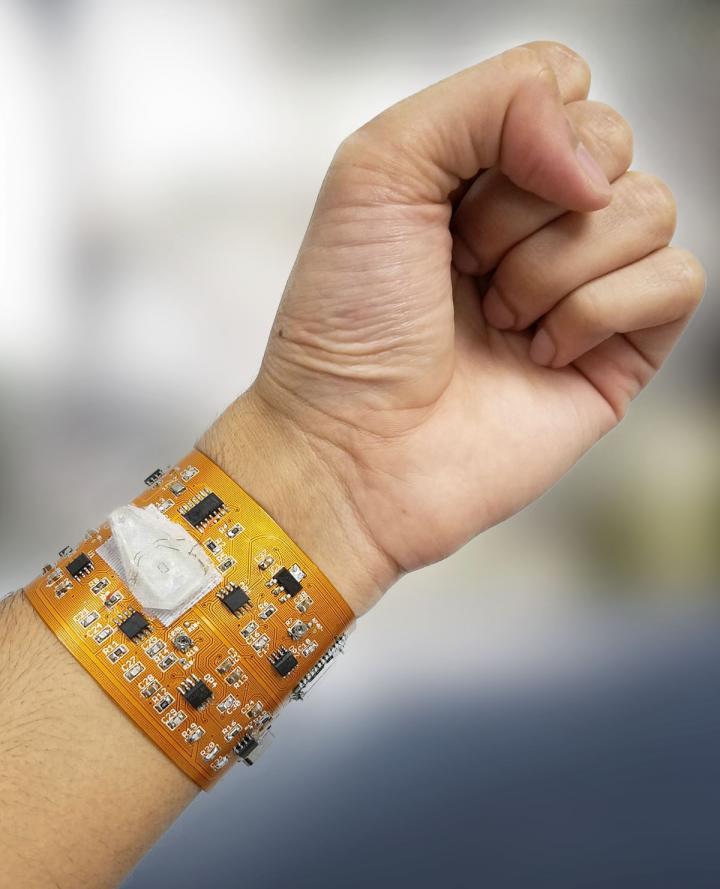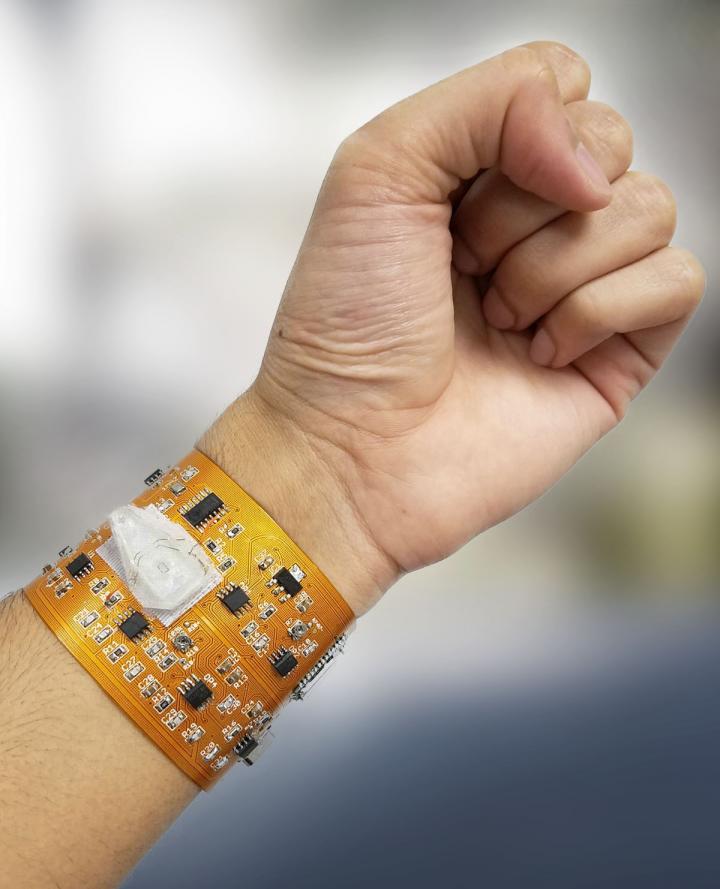
Credit: Abbas Furniturewalla
Rutgers University-New Brunswick engineers have created a smart wristband with a wireless connection to smartphones that will enable a new wave of personal health and environmental monitoring devices.
Their technology, which could be added to watches and other wearable devices that monitor heart rates and physical activity, is detailed in a study published online in Microsystems & Nanoengineering.
"It's like a Fitbit but has a biosensor that can count particles, so that includes blood cells, bacteria and organic or inorganic particles in the air," said Mehdi Javanmard, senior author of the study and assistant professor in the Department of Electrical and Computer Engineering in the School of Engineering.
"Current wearables can measure only a handful of physical parameters such as heart rate and exercise activity," said Abbas Furniturewalla, study lead author and former undergraduate researcher in the Department of Electrical and Computer Engineering. "The ability for a wearable device to monitor the counts of different cells in our bloodstream would take personal health monitoring to the next level."
The plastic wristband includes a flexible circuit board and a biosensor with a channel, or pipe, thinner than the diameter of a human hair with gold electrodes embedded inside. It has a circuit to process electrical signals, a micro-controller for digitizing data and a Bluetooth module to transmit data wirelessly. Blood samples are obtained through pinpricks, with the blood fed through the channel and blood cells counted. The data are sent wirelessly to an Android smartphone with an app that processes and displays data, and the technology can also work in iPhones or any other smartphone.
In the field, offices and hospitals, health professionals could get rapid blood test results from patients, without the need for expensive, bulky lab-based equipment. Blood cell counts can be used to diagnose illness; low red blood cell counts, for instance, can be indicative of internal bleeding and other conditions.
"There's a whole range of diseases where blood cell counts are very important," Javanmard said. "Abnormally high or low white blood cell counts are indicators of certain cancers like leukemia, for example."
Next-generation wristbands could be used in a variety of biomedical and environmental applications, he said. Patients would be able to continuously monitor their health and send results to physicians remotely.
"This would be really important for settings with lots of air pollutants and people want to measure the amount of tiny particles or dust they're exposed to day in and day out," Javanmard said. "Miners, for example, could sample the environment they're in."
###
Media Contact
Todd Bates
[email protected]
848-932-0550
@RutgersU
http://www.rutgers.edu
Original Source
https://news.rutgers.edu/smart-wristband-wireless-link-smartphones-could-monitor-health-environmental-exposures/20180806#.W2hFDShKi70 http://dx.doi.org/10.1038/s41378-018-0019-0





